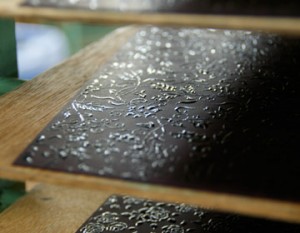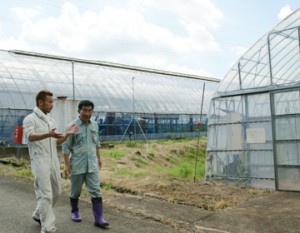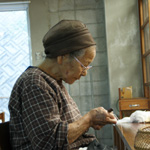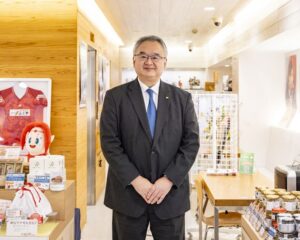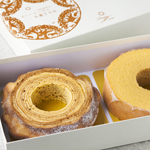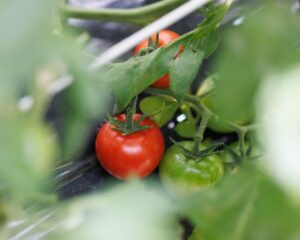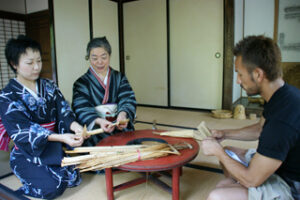Ltd. is headquartered in Iizuna-cho, in the northern part of Nagano Prefecture, close to the border with Niigata Prefecture. The company operates the manufacturer’s brand “St. Cousair” and the food specialty store “Kuze Fuku Shoten” throughout Japan, mainly in major shopping malls.
Today, the company boasts a total of about 150 stores under both brands, but its origins date back to a small pension run by a family.
Ryozo Kuze, the founder of the company, was born in Tokyo. He was a genuine city boy who grew up in a family that ran a trading company specializing in the food service industry in Tokyo, but while helping his family business, he visited a ski resort for business and was fascinated by the lifestyle of the pension owners there.
On the second day of opening, he fell in love with Mayumi, his current wife, who was visiting as a guest, and proposed to her. Soon after they met, they were married.
Thus began the couple’s successful management of the pension, but soon after, a major incident occurred that would affect the future of the Kuze family.
Mayumi was disappointed that Ryozo had neglected their family time and returned to her parents’ home in Kanagawa, because she was too absorbed in her dream job at the pension.
In order to resolve the sudden crisis of the breakup of the Kuze family, Ryozo gave up the pension business and promised to give priority to the happiness of Mayumi and her family. At that time, the homemade jam he was serving to guests for breakfast was gaining a good reputation, and he gradually shifted his focus to the jam business. Six years after its opening, Pension Kuze made a new start as “Ikarao Kogen Farm Co.
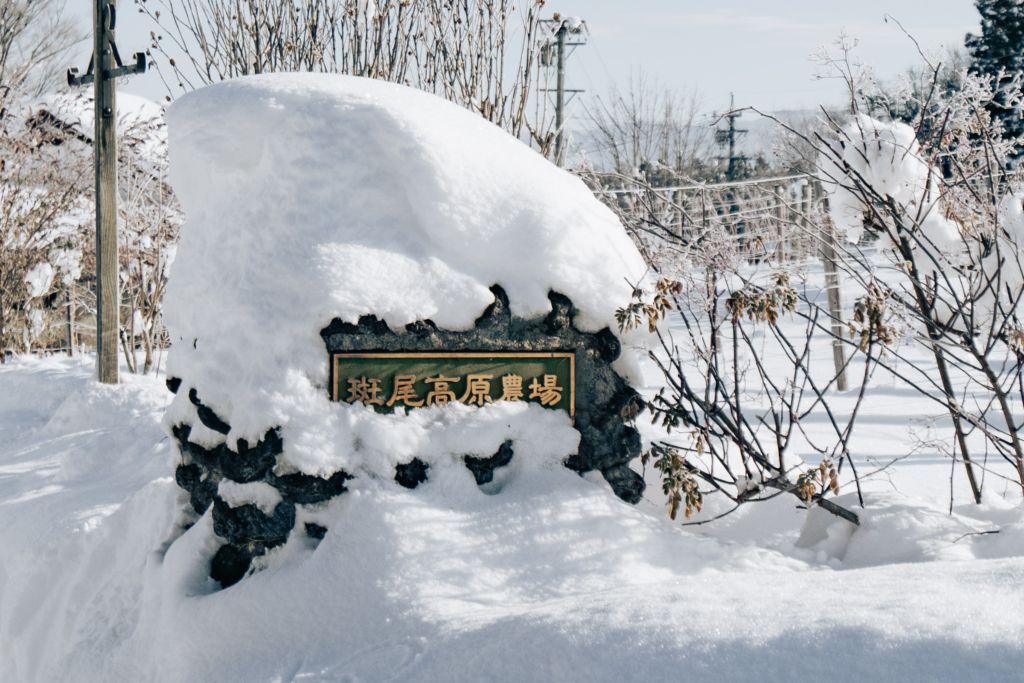
The cornerstone of the new business was a low-sugar jam that Mayumi made for her family using out-of-spec apples, commonly known as “kuzu apples” in the area around the pension’s location in the Takao Plateau.
In this area, apples that did not meet shipping standards due to defects in the growing process or size were called “kuzu apples” and most of them were disposed of. When Mayumi learned of this situation, she thought, “It is a waste that such delicious apples should be thrown away just because they look bad,” so she bought them and began making jam from them.
At first, they expanded their sales channels at a brisk pace, selling their products at nearby facilities and touring resorts in the prefecture in their car as if they were peddlers.
However, it is a fact of life that competing products increase with popularity. The Kuze’s felt the need for a stronger originality, so they visited Normandy, a city in northern France famous for its apples. They closed their pensione and had more time to spare, so the visit was also their honeymoon.
There, the use of apples to make sake was widespread. Witnessing the economically self-sustaining industry using fruits for purposes other than eating them raw, they saw the potential for sixth industrialization using agricultural resources.
At a restaurant he stopped at along the way, he saw locals enjoying a leisurely meal and was also impressed by the mature adult culture of Europe.
This trip convinced the couple that an era of high quality lifestyle would arrive in Japan in the near future. In order to recreate the rich rural lifestyle they saw there, they established their headquarters in the current location, and from 1988 to 1990, they expanded their facilities one after another, including a jam processing plant and their own farm.
The couple felt the need to create a place that combined vineyards, winery, restaurant, and a store where their products could be purchased, in order to convey what they saw and experienced on their travels in an easy-to-understand manner to people in Japan, where the culture of enjoying wine with food was not well established. The company is now focusing its efforts on creating a place that combines vineyard, winery, restaurant, and shop where its products can be purchased. At this time, St. Cousair was adopted as the name of the restaurant.
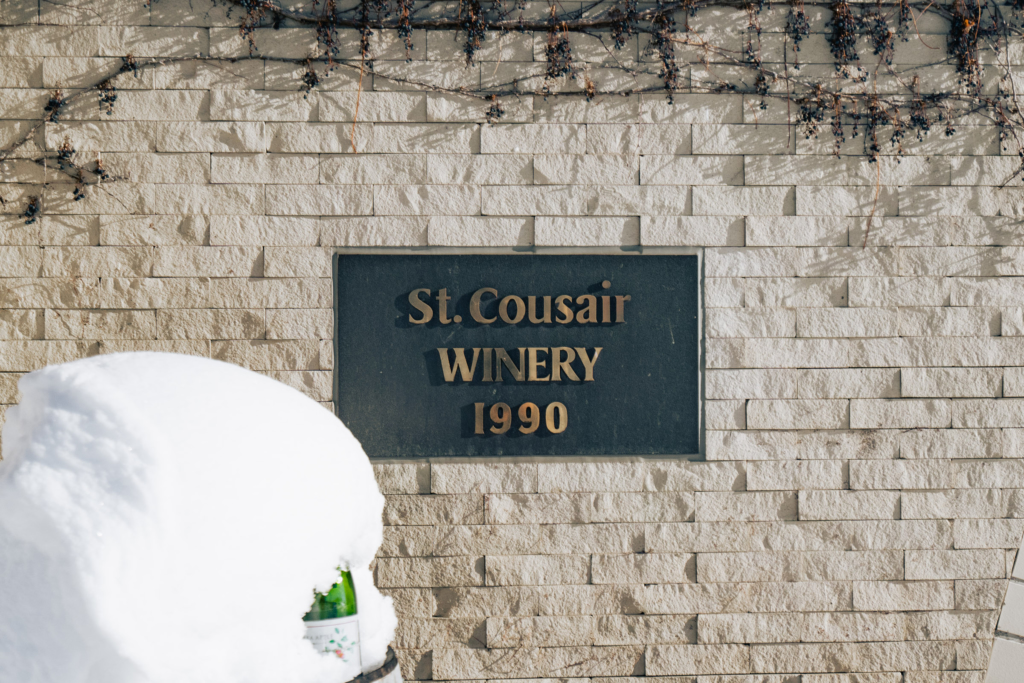
The name was changed to “Kuse-san,” which was taken from the founder’s surname and read upside down, and the ending was changed to make it more familiar to people from overseas. This was the beginning of “Cinq Czère,” which was later developed into a brand and became the basis for the new name, which was changed in 2005 from “Ikarao Kogen Farms Co.
Thus, in addition to the jam business, wine brewing was started. At the time, however, many Japanese wines were inexpensive, low-cost wines, and people often judged wines based on price, not taste or quality, simply because they were made in Japan.
However, the couple stuck to their ideals, putting profits on the back burner and striving to produce quality products through cultivation methods, soil improvement, brewing, and other efforts. In the beginning, sales were not high enough to cover costs, but in 1999, they opened their first directly managed store in Karuizawa. Taking advantage of this opportunity, they developed and sold pasta sauces, dressings, and other grocery products, hoping to create products in line with their own concept in addition to jams and wines. This allowed the couple to flesh out their goal of creating a rich dining scene, and to communicate their commitment to their products more strongly to customers in the store, and sales gradually improved.
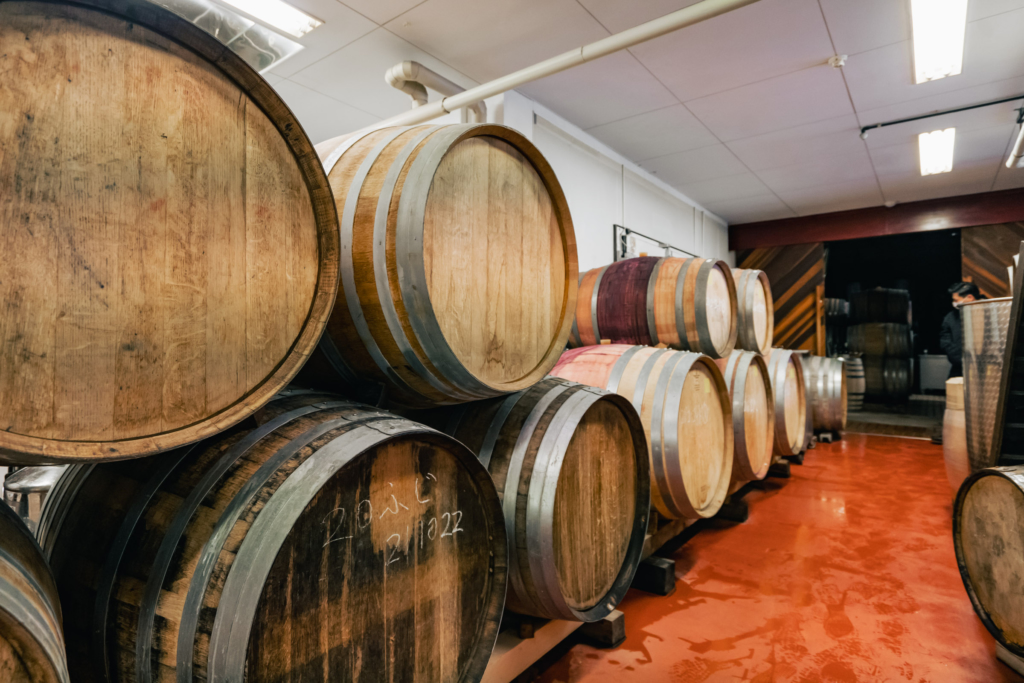
Thus, the foundation of the business became more stable. The number of stores steadily increased, and by 2010, it had become a major brand with nearly 30 directly managed stores.
At the same time, while thinking about the next phase of business development, the company began to open stores overseas. There, he learned how Japanese products are sought after in other countries.
One year, at a food exhibition held overseas, a local buyer asked him, “You are a Japanese company, but don’t you sell products that can only be found in Japan, such as miso and soy sauce? This made him pay attention to “Japan heritage” once again. At that time, he envisioned a grocery brand representing the country, such as FAUCHON or PECK.
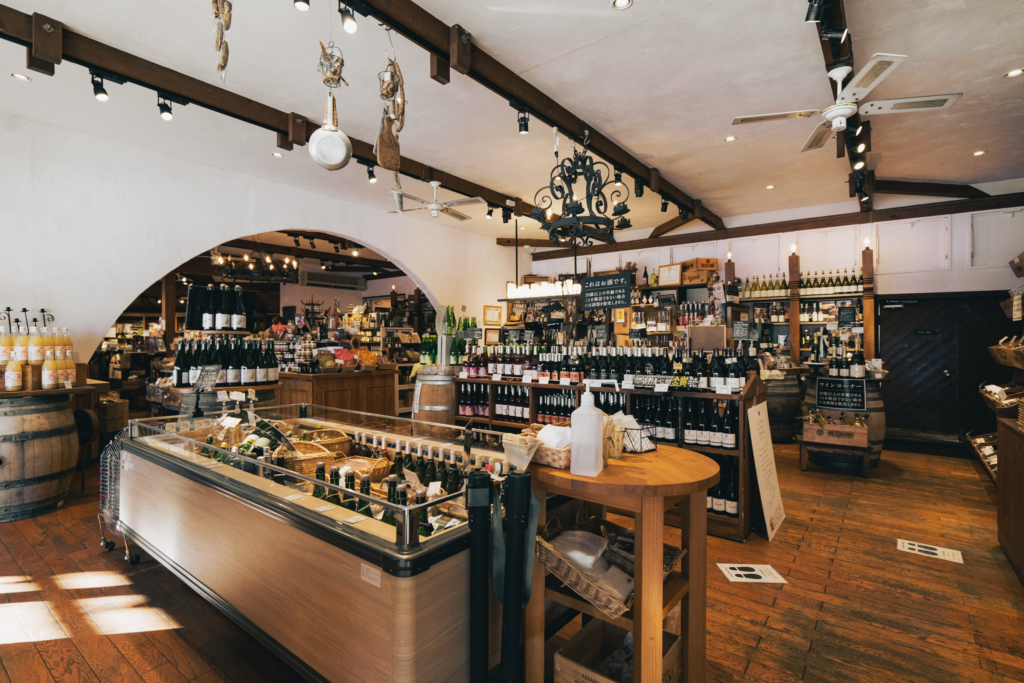
In 2011, manufacturers and producers in the Tohoku region were affected by the Great East Japan Earthquake. The thought of somehow helping those who had lost their sales channels as a result of the disaster was another factor that hastened the conception of the brand.
The result of these events was the birth of “Kusefuku Shoten.
Under the concept of “country comfort,” Kusefuku Shoten offers a lineup of high-quality “Western” grocery items, such as wines, jams, and pasta sauces, that evoke the dining scene of the European countryside, and has opened stores mainly in resort areas throughout Japan, St. Cousair has been branding its food products with a premium feel, while Kusefuku Shoten, under the concept of “The Japanese Gourmet Store,” carefully selects Japanese ingredients such as dashi, tsukudani, and fermented foods, which are associated with Japan, and offers a wide range of Japanese food culture products, along with the thoughts of their makers and the local culinary culture. The company also offers products that reflect the thoughts of the makers and the local food culture. The goal was to open stores in shopping malls and other locations throughout Japan, and to create a select store where customers can enjoy a rich dining experience by adding selected “delicious” foods to their daily lives.
First, we picked up about 25 categories of Japanese ingredients that we wanted. The first store opened in 2013 with a selection of approximately 2,500 items.
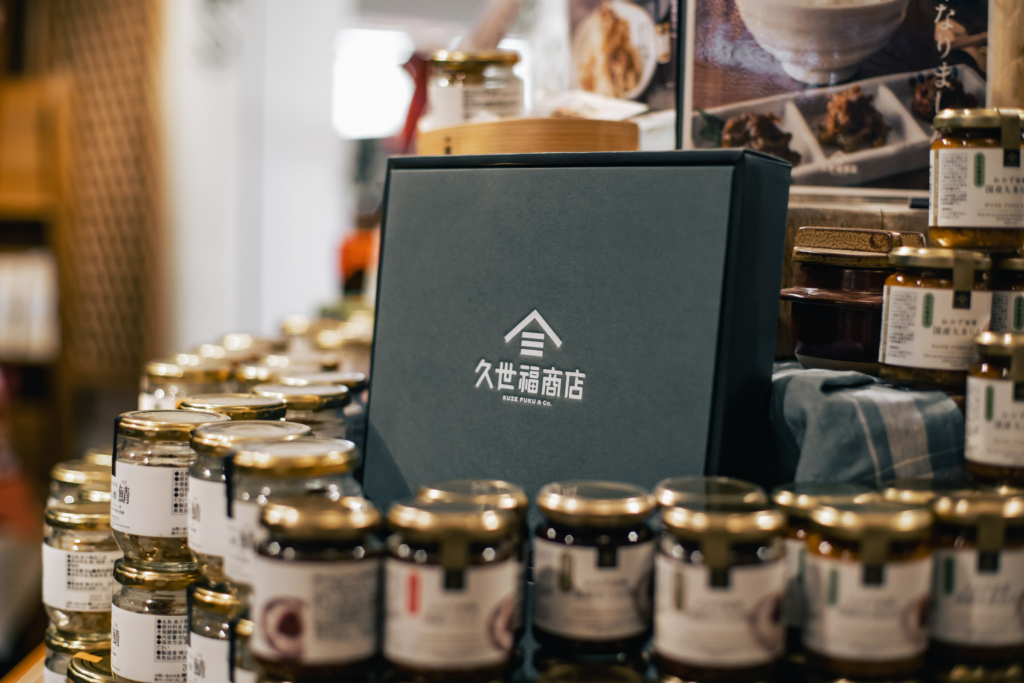
Since then, the number of stores has steadily increased, and even today, with more than 130 stores, the company continues to search for attractive products from all over the country.
This uncompromising attitude matches the needs of today’s society, which demands high quality. It has become a foothold for the brand to make great strides.
In 2018, Ryozo was replaced by his eldest son, Ryota, who became president and representative director. The philosophy that has been spun since the company’s founding has been firmly passed on to the next generation. At the core of the company’s philosophy has always been the desire to “create a rich dining experience. Both Sanxer and KUZE FUKUCHOTEN have followed the direction they believe in, while keeping their own ideas alive, and as a result, the times have caught up with them and they have grown as a business. As a result, the times have caught up with them, and they have grown as a business. They have grown into a brand that bears the responsibility for the richness of the Japanese dining table.
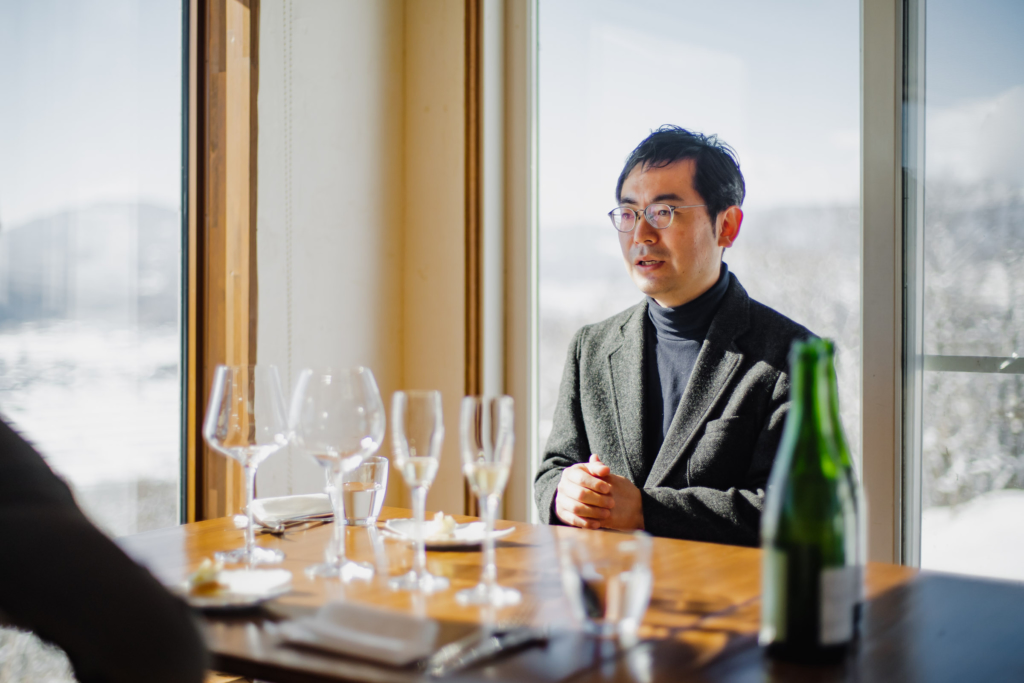
And now, the Kuze family is looking a little further into the future, to the year 2035.
In the near future, the world will become even more accessible through the power of digital technology, and AI and efficiency will replace human work with creative work, while people will seek even greater culinary abundance. The desire that we have believed in and carried through since our establishment is steadily budding, and the products of Cinq C’école Inc. are needed around the world. Aiming for such a future, the top runner in the food industry, with its roots in Nagano Prefecture, will continue to push forward with courage.




